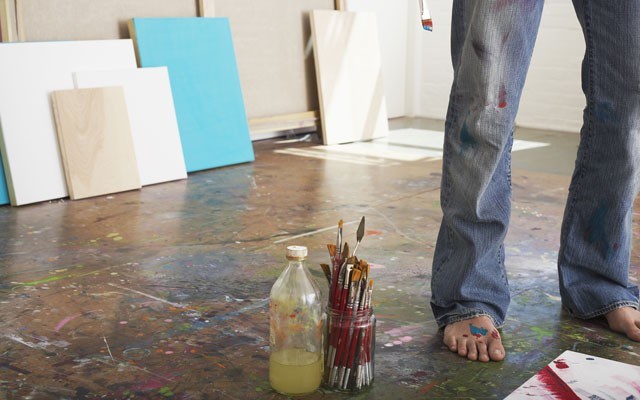Whistler's art and culture scene is maturing.
While we still embrace the "free-spirited" side of ski-bum life there is no doubt that visual arts, music, theatre, museums and more are adding a spice to life in the resort that is most welcome.
It seems quite natural then that this is now extending out into our neighbourhoods with the Resort Municipality of Whistler's (RMOW) plan to allow art sales from home-based studios.
While the plan is generally being supported, it has also come under fire for permit fees considered to be too high and for language that makes it sound like RMOW staff is going to be the art police.
(Staff says they are not judging the quality of art — the aim of the oversight is to ensure the studios are legitimate art studios and not another type of business masquerading as art to get a retail space in a home.)
Let's also consider for a moment that the plan is being rolled out after consultations with stakeholders going back to 2013 when the idea first came up in the Cultural Plan.
Artists have always been able to work at home, but current zoning does not allow for the sales of any product from home-based businesses at any time.
The cost of this change to allow sales? About $915 if you combine the new fee under a Temporary Use Permit (TUP) and the artist's business licence.
In the agenda package for the Dec.1 council meeting, which outlines the stages of the consultation on this issue, it states: "There are essentially two regulatory options available to the RMOW to legalize sales from Home-based Artist Studios: Zoning and temporary use permits. The pros and cons of both tools were reviewed with temporary use permits emerging as the preferred approach."
But using a TUP comes at a bureaucratic cost in terms of both time and money. Indeed the fee, as set, won't cover the cost of its administration.
For example the TUP requires that neighbours are consulted about the applicant studio, a site visit must be done, an advisory committee must look at the applicant on a case-by-case basis and so on.
Mayor Nancy Wilhelm-Morden put it this way to Pique: "We've got an obligation to the taxpayers... that the administrative work that goes along with processing those, to a certain extent, is recovered from the person who is going to benefit from it."
Artists have spoken out against the TUP fee arguing that it is too onerous on a business set that for the most part makes very little income.
Gallery owners were also consulted raising concerns about their operating costs versus those who work and sell from home.
But surely the two are not comparable? A gallery owner is selling the work of multiple artists at a broad range of price points and across various mediums.
Quite different — it could be argued — from an artist who creates their work in a home studio, and who can be viewed in situ and then approached for work to purchase.
In a way the home-based artist is more like a bookkeeper, consultant, or home yoga instructor who works on and provides a service for a client. However, these types of businesses do not have to pay for a TUP in the hundreds of dollars, or business tax rates for the most part either.
Once the temporary use permit program has been in operation for one year, staff will evaluate the success of the program and report back to council. Are changes possible from lessons learned? Absolutely.
Perhaps what might be considered is for the TUPs to be offered at a lesser rate for the first year, then re-visit the process and evaluate its success and look at the issues of fees at that time?
There is no doubt that a robust oversight is needed — there are close to 80 artist studios in homes right now. Neighbours don't want visitor's cars parked all over their access roads and driveways, they may not want chainsaw carvers creating art next to them, they do want chemicals and by-products of the art to be disposed of properly and criminal record checks done — and above all everyone wants the visitor to walk away from a studio visit with a positive impression.
But surely all of this can be accomplished at a price point that shows the great value we have in our local artist community, a community that is growing and helping Whistler grow as well, and through a process that respects the community.




